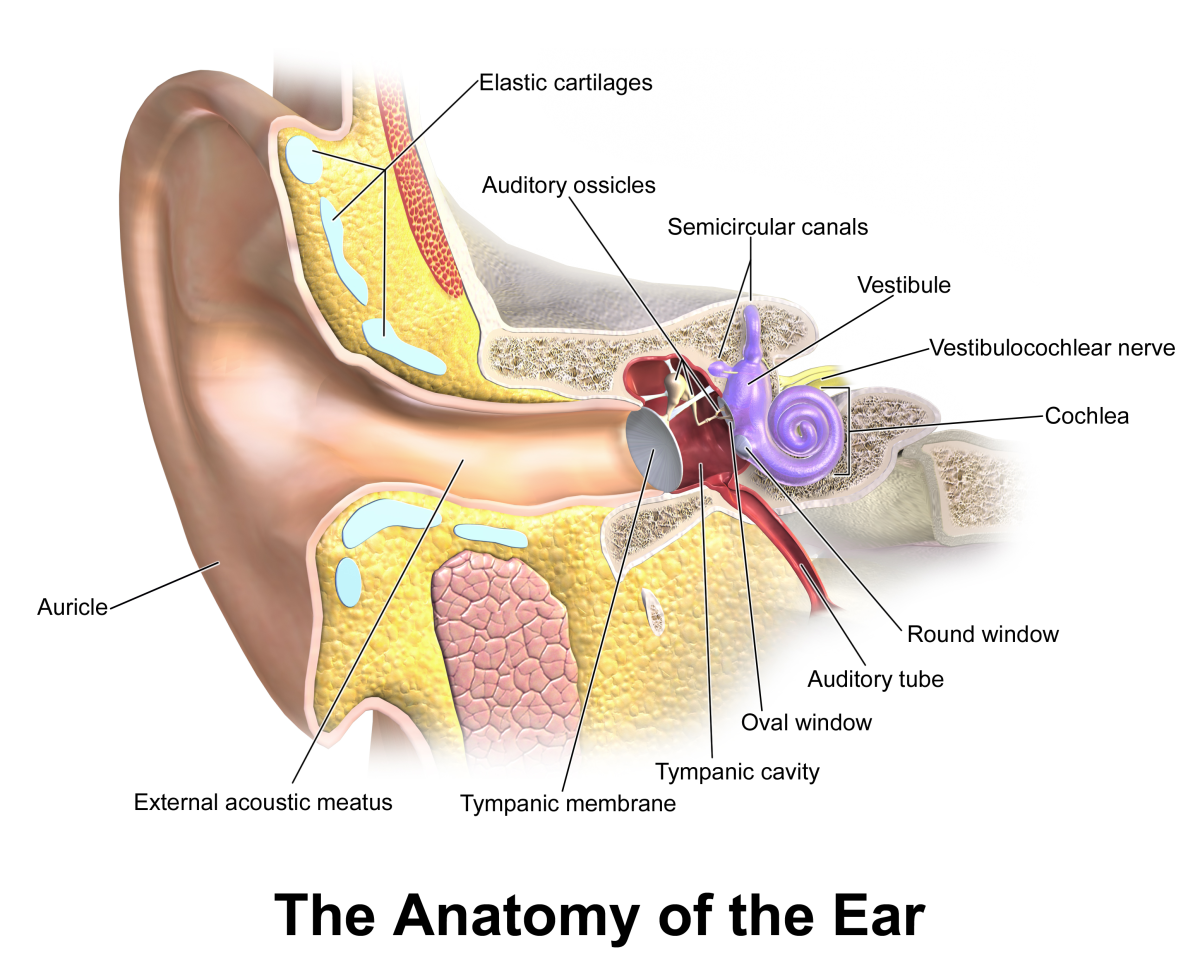- HubPages»
- Health»
- Health Care, Drugs & Insurance»
- Prescription & Over-the-Counter Drugs
Hearing Loss and Other Side Effects of OTC Drugs

Information
I am not a medical doctor. This hub is for informational purposes only. If you think you are having a serious medical side effect from an over the counter medication seek immediate emergency medical treatment.
These are some of the OTC medicines and their brand names I will be discussing:
- Meprazole magnesium - Prilosec
- Ibuprofin - Advil, Motrin
- Acetaminophen - Tylenol
- Naproxen sodium - Aleve
- Aspirin - Bayer, Goody's, Exedrin
Hearing Loss OTC Meds
|
|---|
Aspirin (temporary)
|
Acetaminophen
|
Ibuprofen
|
Hearing Loss
High doses of aspirin have long been shown to cause temporary hearing loss and tinnitus (ringing in the ears). This condition is temporary and disappears when the user stopped the aspirin use.
A new study at Harvard Medical School has found that up to 25% of women who used OTC pain relievers 2 or more times a week for over 10 years had a significant amount of hearing loss. The higher the women's use of over the counter medications, the higher the women's risk of hearing loss.
This is a new finding, so the exact reason for the hearing loss is not known yet. It is speculated that the OTC drugs affect the cells of the cochlea by limiting blood-flow to this delicate area are of the ear, causing tissue and nerve damage.
Headache OTC Meds
|
|---|
Acetaminophen
|
Sinus medications
|
Ibuprofen
|
Aspirin
|
Pain relievers with caffeine
|
Headaches
Did you know taking too much of popular headaches remedies can cause more headaches?
It is called the rebound effect, and people who have chronic headaches or other pain can actually exacerbate the problem by taking too many over-the-counter drugs too often.
The best advice is to limit your intake of OTC painkillers, or to switch types of painkillers on a regular basis.
Breathing Problems
Bronchospasm (constriction of the bronchial tubes), difficulty breathing, and pronounced wheezing can occur as a side effect to ibuprofen. It is more likely to occur in people with asthma.
Swelling OTC Meds
|
|---|
Naproxen sodium
|
Acetaminophen
|
Ibuprofen,
|
Allergic Reactions
Edema (Swelling)
A mild side effect of some OTC drugs is swelling of the face, hands, feet, mouth and/or lips. The condition is usually temporary, but seek medical help if the swelling interferes with breathing, or if you develop more serious symptoms such as a racing heartbeat, difficulty breathing or vomiting.
Skin rash OTC Meds
|
|---|
Aspirin
|
Ibuprofen
|
Acetaminophen
|
Naproxen sodium
|
Skin Rash
Skin rashes can occur if a person has an allergic reaction to the OTC medicine. Symptoms can include rash, redness, swelling and hives. If symptoms worsen, seek immediate medical attention.

Reye's Syndrome
This is a serious and sometimes deadly illness that had once been linked to viral infections and aspirin use in children. Reye's syndrome causes brain swelling and fatty liver.
The validity of the link between Reye's syndrome and aspirin has been questioned in recent years. To be on the safe side, children under the age of 19 should not be given aspirin in conjunction with a fever caused by a virus.
GI Bleeding OTC
|
|---|
Aspirin
|
Ibuprofen
|
Naproxen sodium
|
Gastrointestinal Bleeding
Bleeding can be caused by the irritating and caustic effects of some OTC medications on the lining of the GI tract.
Ulcerations of the entire digective tract can occur, and there is a risk of severe internal hemorrhage, particularly in the elderly population. If you are taking OTC medications and see blood in your stool, or start vomiting blood, contact your doctor immediately.
Reduced Kidney Function
|
|---|
Ibuprofen
|
Meprazole magnesium
|
Naproxen sodium
|
Acetaminophen
|
Kidney Function
Reduced kidney function
Some OTC medicines can cause reduced kidney function due to reduced blood flow to the kidneys. The risk increases if a person has another medical condition such as diabetes or hypertension.
End stage renal disease (ESRD)
People who took OTC pain medications are at an increased risk of ESRD, according to a study 1994 study. The higher the medication usage, the higher the risk of ESRD.
The doctors noted that in the 1950s a drug containing phenacetin was associated with ESRD, and was subsequently pulled off the market. Acetaminophen is a metabolite of phenacetin.
Acute renal failure can occur with liver toxicity due to acute acetaminophen use.
Liver Damage
Heavy acetaminophen use can damage the liver, sometime irreversibly. In order to dispose of acetaminophen from the body, the liver converts it to a metabolite. High doses of the OTC drug causes the body to produce more metabolite then the body can rid itself of, leading to liver damage.
- Acetaminophen
US FDA Public Service Announcement
OTC Links
- Drug-Induced End-Stage Renal Disease
Those requiring large quantities of analgesic medicines and those at high risk of renal failure may be best advised to use aspirin for pain control. - Pain Relievers and the Risk of Hearing Loss | Page 2 | The Dr. Oz Show
We studied over 60,000 women who are participants in the Nurses’ Health Study II and followed them for 14 years in order to prospectively examine whether analgesic use is a risk factor for hearing loss in women. - USPharmacist.com > Common Adverse Events and Interactions with OTC Pain Medications
Approximately 36 million Americans use OTC pain medications daily... - Over-the-Counter Medicines: MedlinePlus
Over-the-Counter Medicines








